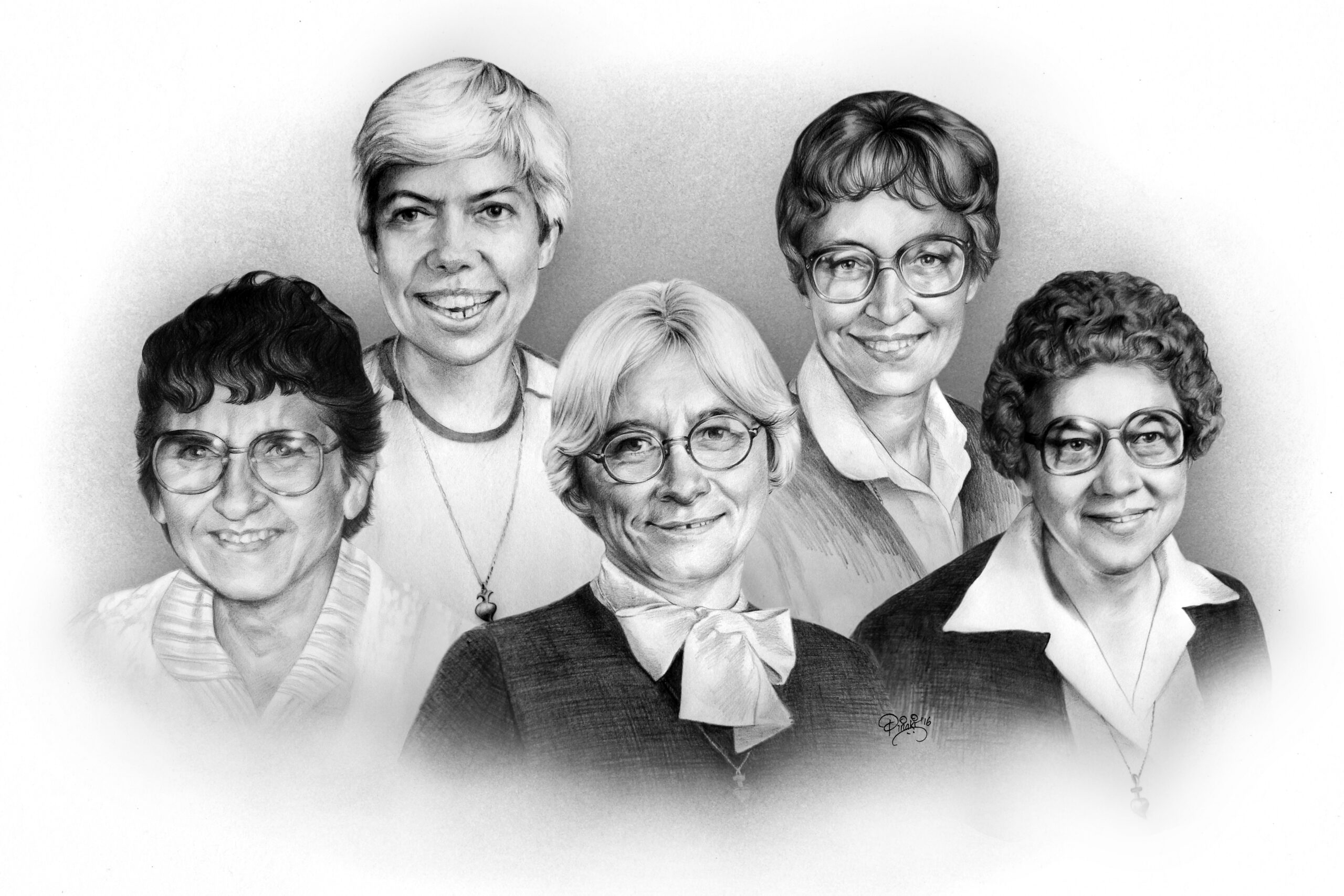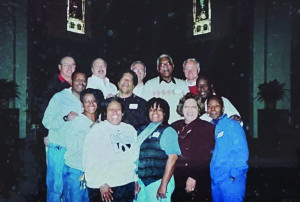by Fr. David Matz, C.PP.S., Sonnino Mission House, Berkeley, California
As vaccinations allow the re-opening of all that was closed during the pandemic, it is a delight to see children in the school playground in Berkeley again. A coach was out with the children when I heard him say to a smaller group, “Positivity! I want to hear positivity in your words! You don’t like it when others talk bad about you. I want you to talk positive about your teammates because it makes you feel good!”
As a member of the Missionaries of the Precious Blood, the bond of charity has always been a value that we strive to show to all. The coach’s words reminded me of this bond. Like we learned in kindergarten and grade school, we must affirm and encourage the use of positive words and actions in the realm of religion, politics, and power rather than words and actions that demonize, divide, and label other people.
Unfortunately, since January of this year, hundreds of bills that target LGBTQ people have been filed in state legislatures, which is creating a “state of crisis,” advocates say. The bills “attempt to erase transgender people and attempt to make LGBTQ people second-class citizens,” says Alphonso David, president of the Human Rights Campaign. “Until now, 2015 held that record, with 15 anti-LGBTQ bills enacted into law; so far this year 8 bills have been signed into law, and another 10 are sitting on governor’s desks awaiting signatures.”
In Arkansas, state lawmakers voted overwhelmingly, by a 3-1 ratio, to override a veto from the Republican governor, Asa Hutchison, and effectively banned gender-affirming medical treatments, such as puberty blockers and hormone therapy, for trans youth under the age of 18. Many people gave testimonies both for and against the bill. While families and experts who work with transgender youth spoke against the bill because of its damage to the wellbeing of those who would benefit from medical treatment, what is disturbing is that those who sought to block these treatments, had little or no experience with these youth.
The Arkansas bill takes effect in June 2021 and makes it illegal to give gender-affirming care to those who need it. One clinician told the legislature that she received hundreds of calls from her clients concerned about where and how they will continue their therapy. She cited the rates of suicide among transgender youth and warned that if they passed the bill, each time one of her clients die each of them will be receiving a call from her letting them know of their deaths.
Twenty other states are considering banning gender-affirming medical care for youth with “gender dysphoria.” Transgender persons make of 2% of the population but transgender youth have a 30%-50% higher suicide rate than other groups of young people. The American Academy of Pediatrics has found that gender-affirming care from multi-disciplinary teams, parents, and extended families significantly reduce the suicide rate. It is astonishing that America, which supposedly values a culture of life, is brutally disregarding a vulnerable youth population and devaluing their dignity.
Recently, a father from Kansas City testified in front of the Missouri House of Representatives, “For years I didn’t get it! I forced my daughter to wear boy clothes to protect my child and protect myself. My child was miserable! I had a child who did not smile.” The epiphany moment for him was when he saw his daughter in a dress. He told her she could not go across the street to play at a friend’s house dressed like that. His daughter then asked if she could go if she put on boy clothes. “It was then that it hit me, that my daughter was equating being good with being someone else. I was teaching her to deny who she is. As a parent, the one thing we cannot do, the one thing, is silence our child’s spirit.” He stopped silencing his child and allowed her to grow her hair long and wear “girl” clothes. “It was a total transformation,” he said. “I now have a confident, smiling, happy daughter. She plays on girls’ volleyball teams. She has friendships. She’s a kid.” He urged the legislature not to pass a bill banning transgender students from playing on sports’ teams. The bill “will have real effects on real people,” he said.
In a recent New York Times piece, columnist Frank Bruni writes, “It doesn’t matter if those youth are pleading for this kind of help or have already begun receiving it and found it to be lifesaving. It doesn’t matter if their parents, having wrestled hard with the situation and done extensive research, believe that therapy is crucial. It doesn’t matter if physicians, clinicians, and psychotherapists have concluded throughout the world that it’s in the youths’ best interest. ‘Politicians know best.’” Bruni concludes that in the interest of political gain politicians heartlessly identify vulnerable, marginalized populations and demonize them while making themselves think they are the experts. There are scores of active legislations across the nation that promote this heartless agenda.
We are Precious Blood people! We know that all life is precious and that the blood of Jesus doesn’t discriminate and that as the blood flows, the boundaries of God’s love increase to include all people. We have a special call to look for the most vulnerable people and advocate for them. Giving them the space to speak their truth. Breaking down our own boundaries and celebrating that we are all in relationship with each other—one in Christ.
This is personal for me as a missionary. Many straight people have asked me what I, a gay priest, have in common with someone who is transgender. Like you, I can think back to the culture wars that have polarized our communities. Gay people know what’s it’s like to have their identity, dignity, and happiness pressed into a cultural and political weapon. Two examples: in our Church in the 1990s there was a debate about whether a gay man could be ordained a priest and most recently, a decree saying the Church cannot bless same-sex unions. A legislative example was in 2015, when North Carolina declared that transgender people could only use public restrooms of their birth gender, which was repealed in 2016. The legislative bans related to transgender youth aren’t unfamiliar territory for us in the latest of the culture wars. Can we even comprehend what it is like to be born into a body that does not match our gender identity? Why are we creating laws to reject transgender people and deny their medical care? It’s exploitation and cruelty.
As Precious Blood people we know that sharing our story and our truth is vital for life. It is when transgender people share their story that we begin to learn like the coach with the children to live them in positivity. Benjamin, a transgender friend and coach of mine, has shared how in his transition he finally feels at home in his body and is able to live his truth. He coached me and together we moved from relating to him as a woman to now referring to him as a man—she/her pronouns became he/him pronouns. I am so grateful that he expanded my world with his truth, and I continue to honor him to this day!
As Precious Blood, we have a call to stand up for the vulnerable. While we may not feel like these laws affect us, we have an obligation to stand in solidarity with our transgender brothers and sisters and their families. In solidarity we create the playground of positivity and that is the Kingdom of God!


 Precious Blood spirituality is the welcoming feeling you receive when you enter a parish or a room for the first time and you feel at home. It is feeling appreciated as a person; it is being welcomed to share your gifts and talents with your church community. It is being missed when you do not attend Mass. It is the overwhelming feeling of “Hey, where have you been?!” when you return to Mass after missing a few Sundays for whatever reason, with no questions or judgement. It is the love and support you receive through the struggles of life just by attending Mass.
Precious Blood spirituality is the welcoming feeling you receive when you enter a parish or a room for the first time and you feel at home. It is feeling appreciated as a person; it is being welcomed to share your gifts and talents with your church community. It is being missed when you do not attend Mass. It is the overwhelming feeling of “Hey, where have you been?!” when you return to Mass after missing a few Sundays for whatever reason, with no questions or judgement. It is the love and support you receive through the struggles of life just by attending Mass.